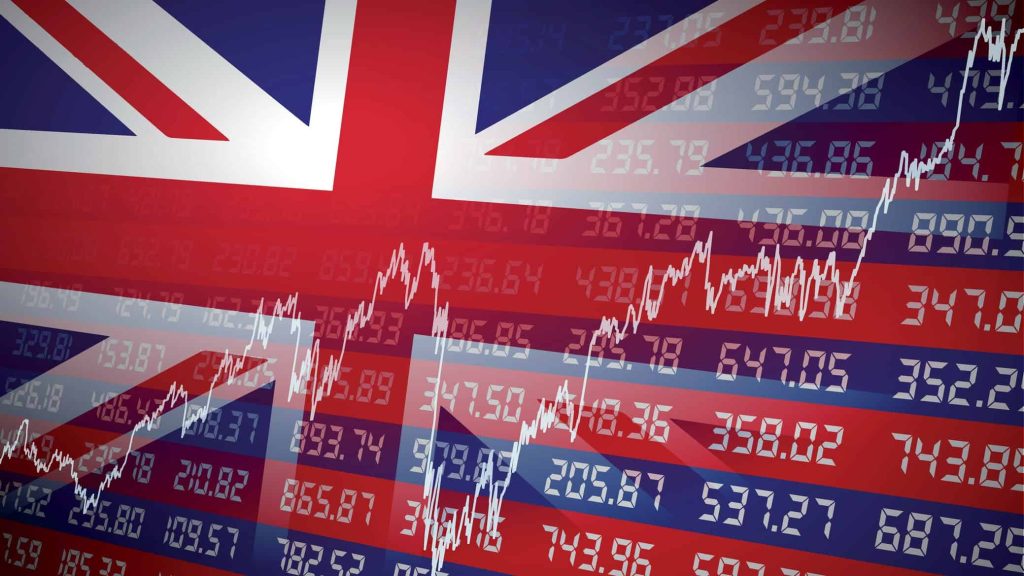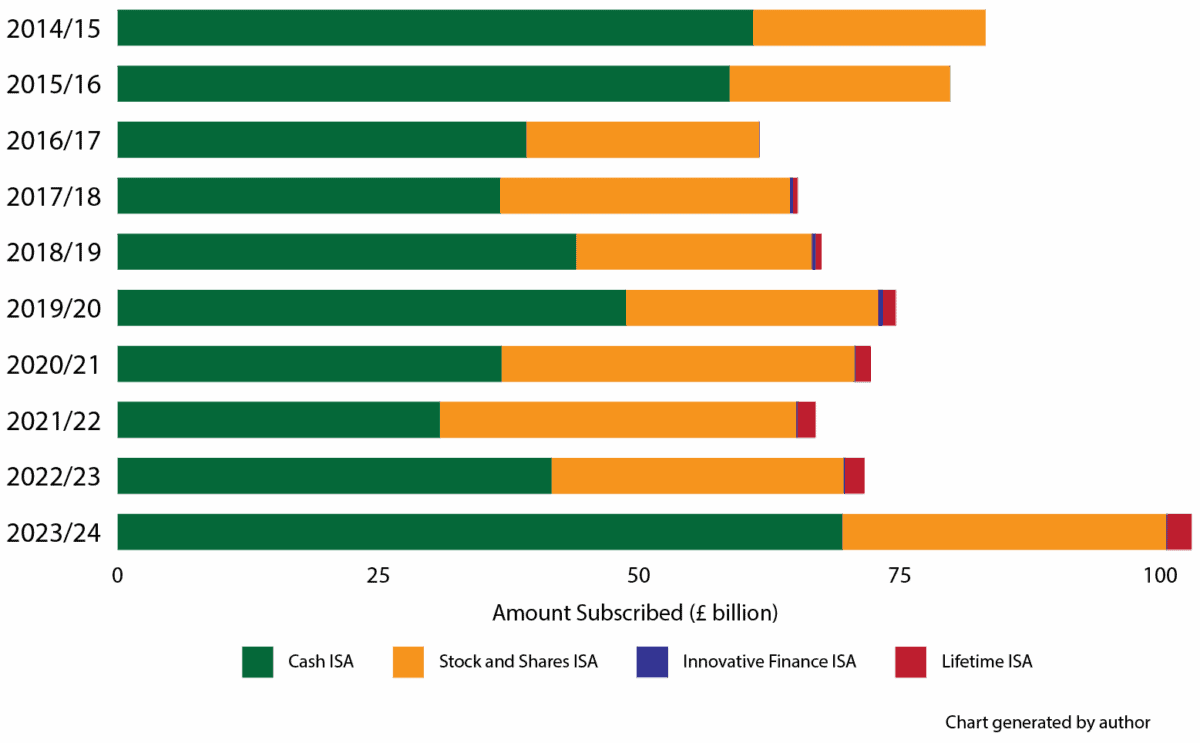I asked ChatGPT how the Autumn Budget could supercharge UK stocks – here’s what it said


The Autumn Budget landed yesterday (26 November), and one change immediately caught my eye: the Cash ISA allowance for under-65s has dropped from £20,000 to £12,000. I asked ChatGPT what this could mean for the stock market â and the answer was clear: with less room for cash, more investors are likely to gravitate to Stocks and Shares ISAs.
Cash is king
I could have worked that out for myself. But ChatGPT was right about one thing â cash ISAs dominate the UK savings market. In the last financial year, for every new Stocks and Shares ISA opened, 2.42 Cash ISAs were opened.Of the total £103bn in ISA savings, over two-thirds is held in Cash ISAs. The full breakdown is shown in the chart below.

HMRC data
Most cash savers play it safe, so if they do begin to gravitate into a Stocks and Shares ISA, theyâre likely to stick with what feels solid â FTSE 100 dividend payers. These household-name companies offer steady payouts and familiarity.
Dividend plays
The FTSE 100 is packed with dividend payers offering much more than a Cash ISA does. But I am conservative by nature and so I want to see really strong evidence that a stock could support its payments into the future.
One of my favourites remains household name Aviva (LSE: AV.). It holds number one positions in huge swathes of its business operations, including UK General Insurance, Protection, Workplace and individual annuities.
But itâs the mix of the portfolio that really is important to me. The acquisition of Direct Line group means that by 2028 over 75% of operating profit will be derived from capital-light operations. This mix is attractive for shareholders because it means stronger growth and better returns, but with less use of capital.
Recession fears
Of course, even the most cautious investors will want to weigh the risk of an economic slowdown. A weaker economy could hit key parts of Avivaâs business that rely on growth.
Workplace pensions provide a steady revenue stream, but if unemployment rises significantly, contributions could fall sharply. This is one of those hidden risks â not immediately obvious at first glance, but worth keeping in mind.
Another area to watch is General Insurance, the companyâs biggest revenue generator. Premiums across home and motor insurance have dropped recently, and with the added costs of integrating Direct Line, profit margins could be squeezed.
Bottom line
The £12,000 cap on Cash ISAs may be controversial, but I think the UK stock market could be a beneficiary in the long run. Cash savers now have a clear reason to rethink where their money sits. That could drive meaningful change.
Beyond the Budget, the Mansion House Accord signalled a wider push for pension money to flow into private markets. If that idea is ever extended to everyday savers, Iâm not convinced many cautious investors will embrace it. Most people naturally gravitate towards what they know and trust.
Aviva fits that profile. Over 40% of UK adults hold a policy with the company, putting it among the most recognisable and trusted financial brands in the country. It also offers a 5.5% dividend yield alongside growth opportunities across its diversified portfolio. These factors leave it well placed to benefit from the shake-up in Cash ISAs and I see it as worth considering.
The post I asked ChatGPT how the Autumn Budget could supercharge UK stocks â hereâs what it said appeared first on The Motley Fool UK.
Should you invest £1,000 in Aviva plc right now?
When investing expert Mark Rogers has a stock tip, it can pay to listen. After all, the flagship Motley Fool Share Advisor newsletter he has run for nearly a decade has provided thousands of paying members with top stock recommendations from the UK and US markets.
And right now, Mark thinks there are 6 standout stocks that investors should consider buying. Want to see if Aviva plc made the list?
More reading
- Could the Autumn Budget help shrink the UK shares valuation gap?
- With its 5.7% dividend yield, hereâs what I like about Aviva
- 3 reasons why Aviva’s share price could surge 18% to 760p
- This FTSE 100 dividend stock yields 5.6% â could it be the safest passive income play in December?
- Yields above 5%! Here are my 2 favourite FTSE 100 dividend stocksÂ
Andrew Mackie has positions in Aviva Plc. The Motley Fool UK has no position in any of the shares mentioned. Views expressed on the companies mentioned in this article are those of the writer and therefore may differ from the official recommendations we make in our subscription services such as Share Advisor, Hidden Winners and Pro. Here at The Motley Fool we believe that considering a diverse range of insights makes us better investors.





